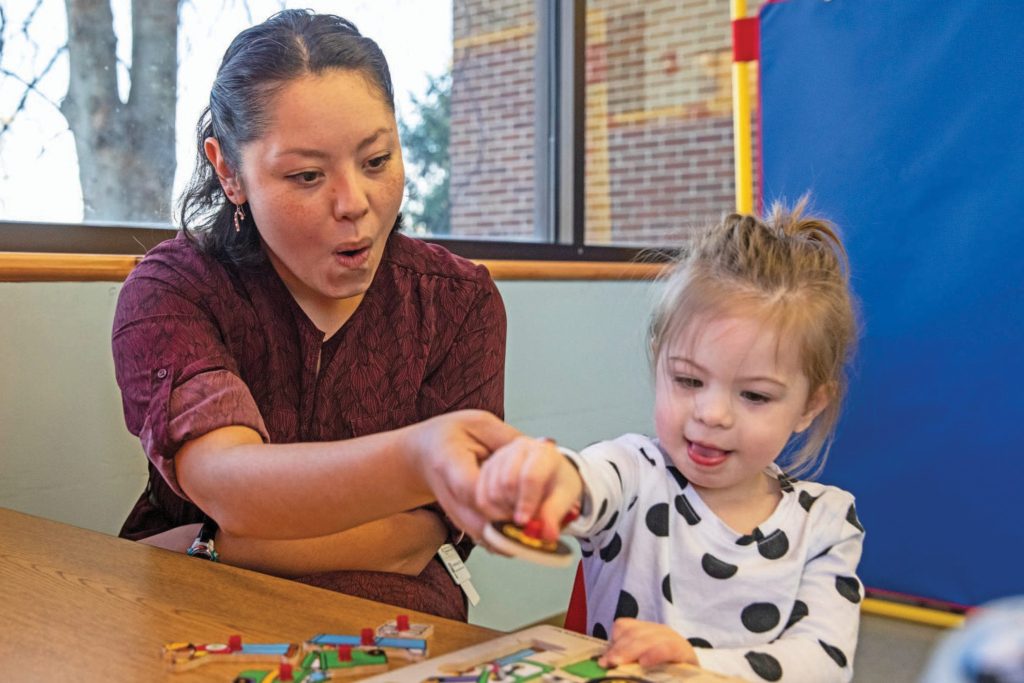The Centers for Disease Control and Prevention estimates that autism spectrum disorders (ASD) impact 1 in 44 children in the United States. Nationwide, more than 1 million families must face the hurdles of dealing with these neurodevelopmental conditions. It is the mission of the Thompson Center for Autism and Neurodevelopmental Disorders at the University of Missouri in Columbia to improve the lives of those affected by ASD and similar conditions through research, clinical services, training and education. The Thompson Foundation for Autism is an active partner in supporting the center’s initiatives.
The Thompson Center sees roughly 13,000 patient visits annually, representing 5,000 individuals. That still leaves many families on the center’s waiting list for diagnostic services and treatment. The Thompson Foundation works to generate resources so the center can expand its reach to even more families in Missouri. T&S spoke with Katie Lentz, the foundation’s director of donor relations, to learn more.
How does the Thompson Foundation for Autism serve the community?
The Thompson Foundation for Autism strengthens children and families affected by autism and neurodevelopmental disorders through raising awareness and education, advancing public policy and, most significantly, funding the Thompson Center at the University of Missouri in Columbia.
What types of services do you offer for individuals?
The Thompson Foundation supports the work of the Thompson Center, which is a national leader in autism and neurodevelopmental disorders through its top-in-the-nation clinical services, world-class collaborative research and best-in-practice training and education.
How is the Thompson Center active in the St. Louis community?
In October, the Thompson Center hosted the 17th Annual Thompson Center Autism Conference in St. Louis. The conference was attended by more than 400 professionals who work with individuals with autism and neurodevelopmental disorders. In addition to bringing economic impact to the region, the conference provides education and training with presentations by regionally and nationally recognized researchers and practitioners in the field of autism.
What is your greatest need and what challenges do you face?
Our greatest need is to hire psychologists, physicians and staff to support the demand for clinical services. Developmental delays affect one in six children, so the waitlist to see a specialist at the Thompson Center can be long. By hiring providers, more children will receive faster access to the care they need.
the thompson center’s local impact
- In 2021, 166 patients from the St. Louis region received clinical services at the Thompson Center.
- Since 2013, 233 patients from the St. Louis region have received diagnostic evaluations.
- The Thompson Center provides parent and teacher training in schools across the St. Louis region, including St. Louis Public Schools and the Fort Zumwalt School District.
- The Thompson Center’s signature fundraising event, the AMAZE Gala and Auction, hosted by the Thompson Foundation for Autism, has raised $6.7 million in St. Louis since 2007.
For more information, visit thompsonfoundation.org.
Photo courtesy of The Thompson Foundation for Autsim
